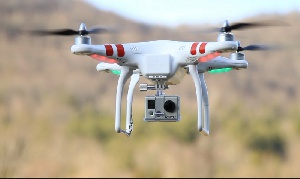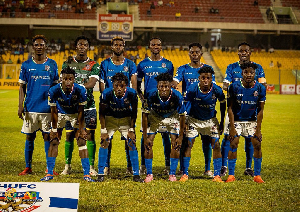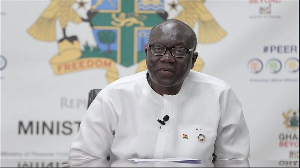Ghana’s Civil Aviation Authority (GCAA) is starting to take drones seriously—very seriously. It has issued new directives on drone ownership and operations, under which operating an unregistered drone (or “Remotely Piloted Aircraft System,” as the authority calls it) can incur a jail term of “up to 30 years.” Piloting a drone will also require a license.
The authority has kicked off the process of registering all drones in the country. The GCAA says the new policy is needed to prevent accidents in Ghanaian airspace.
“There are several enforcement actions including withdrawal of permit to fly the drone,” Simon Allotey, GCAA director general, said in a radio interview. “You could be convicted up to a 30 year jail term.” The new policy is also expected to spell out areas “unapproved” for drone operation.
Nigeria and Kenya have already imposed strict drone regulations. In Nigeria, operators require permits from the Nigerian Civil Aviation Authority (NCAA) as well as the office of the National Security Adviser. In total, the process of gaining the permits in Nigeria costs $4,000, compared to $5 in the United States.
Drones have seen rapid adoption by creative types in film-making and photography. And given the tendency for stiff regulation to be used as a means of rent-seeking and extortion by government agencies, the steep prices and complex registration procedure look to those enthusiasts like a way to tax a new high-growth industry.
That suspicion is reinforced if you consider that more than half of the $4,000 registration cost in Nigeria consists of a “non-refundable processing fee” of $2,500, which prospective operators will have to pay each time they apply, including if a previous application was rejected. And permits will be valid for only three years.
This laborious, expensive process is the best signal yet that Nigerian government agencies are not as disposed as their counterparts elsewhere on the continent to the innovative use of drones to solve problems such as health care delivery. Is Ghana leaning more towards the Nigerian approach?
General News of Sunday, 10 July 2016
Source: qz.com













